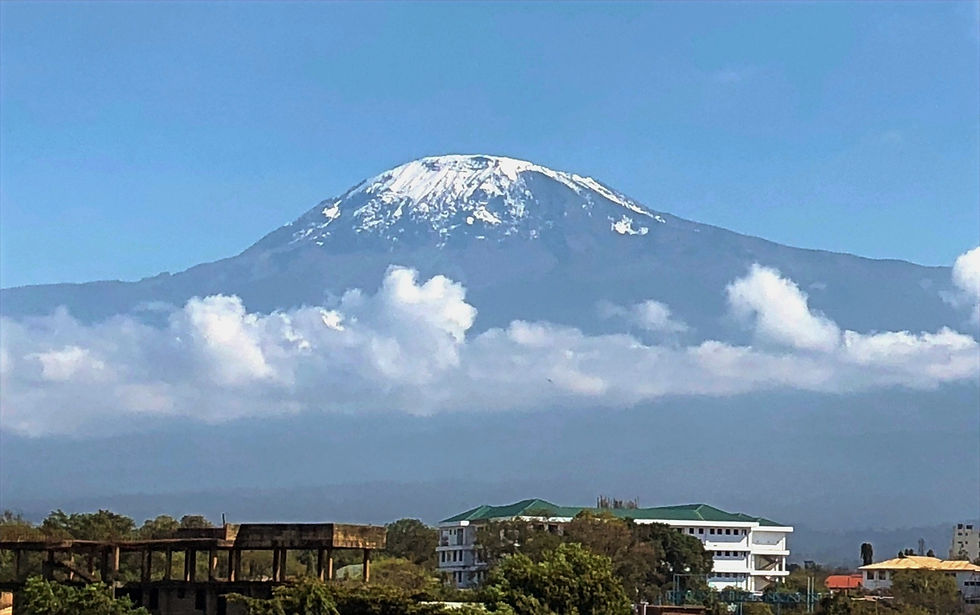- Local Moshi Adventures
- Mar 8, 2021
- 3 min read
Updated: Aug 4, 2022
First things first...

Congratulations! You have decided to climb the magnificent Mt Kilimanjaro,
one of the world's most accessible high summits that can be reached without technical skills, making it a beacon for visitors from around the world.
But make no mistake, it is a demanding and challenging endeavor.
Medical Check-Up

Reaching Uhuru Peak requires great physical effort especially when getting to higher altitudes. Because trekking at high altitude can exacerbate any pre-existing medical conditions, a physical check-up is recommended for every climber.
While hikers with high altitude experience most likely are already aware of their physical condition, for those climbers without prior hiking experience, a physical check-up is of utmost importance.
Know thyself starts with a medical check-up.
Visas and Passports

The price for a visa varies depending on citizenship, with the cost for US passports being $100, and most other passports $50.
Detailed visa and passport requirements pertaining to individual countries can be found on the Tanzanian Embassy Website designated for the particular country.
Visas can be obtained at the airport upon arrival, at the Tanzanian Embassy in your respective country prior to departure, or online: https://eservices.immigration.go.tz/visa
If you are planning to obtain your visa upon arrival, the Tanzanian Government requires crisp $50 bills newer than 2006.
What kind of luggage should I bring?

When climbing Kilimanjaro you will need to bring at least 2 bags.
The first bag should be a small daypack which you will carry with you during the day. This daypack should accomodate your water, snacks, raingear, an extra layer of clothing, as well as any personal items you may need during your hike.
We recommend a backpack which includes a three liter hydration pack.
If your hydration pack is new, we suggest thoroughly rinsing it many times prior to its first use as there is an inherent plastic taste that comes along with the hydration pack.

Your second bag will be carried by a porter from campsite to campsite and you will not have access to this bag during the day.
It will be waiting for you upon arrival at your next campsite.
This bag should not weigh more than 30 lbs and contain all of your other gear, toiletries and personal items you don't need during the day. It can be a duffelbag or a backpack, either way it does not need to be waterproof as the porter will place it inside a larger waterproof bag.
Personal items you don't need on the mountain can be safely stored in a designated storage room at your hotel.
Lost or delayed luggage
If your luggage is delayed or lost, we will do everything we can to keep your climb schedule on track.

We recommend you wear your hiking boots and pack as much gear as possible in your carry on luggage. If it becomes clear that your luggage will not arrive on the evening before your climb, we will help you determine which gear is missing to ensure a successful climb. The next morning, prior to start of your climb, one of our representatives will take you to an outfitter where you can rent any missing gear.
All out-of pocket costs, including transportation to the airport to collect your luggage, as well as to outfitters to rent your gear, will incur additional costs to be paid by you. Be sure to check your travel insurance policy includes coverage for lost luggage.
Local Moshi Adventures has partnered with local rental gear outfitters. We pass their pricing directly on to our climbers.
For our rental gear price list please click here.
Medical/Travel Insurance
Medical travel insurance covering high altitude trekking is a mandatory requirement to participate in our climbs. Prior to your climb your guide will verify that you have the appropriate insurance coverage.

Although not required, you may wish to investigate acquiring repatriation insurance (covers airlift to your home country) as well as travel insurance (covers theft, lost luggage etc). More information about Medical/Travel Insurance here.

%20.png)